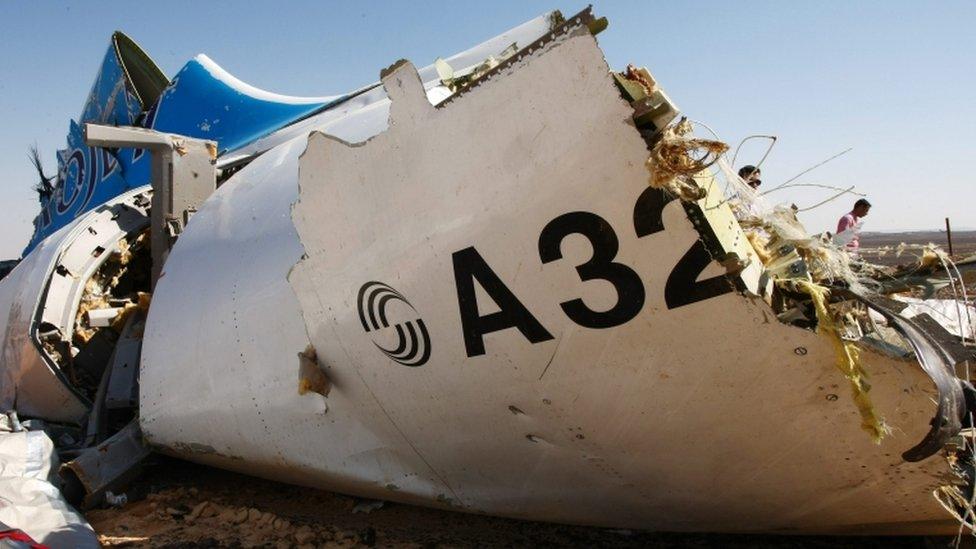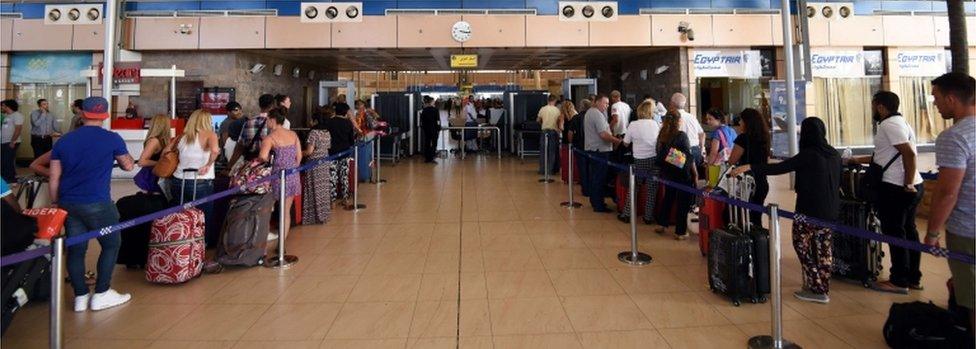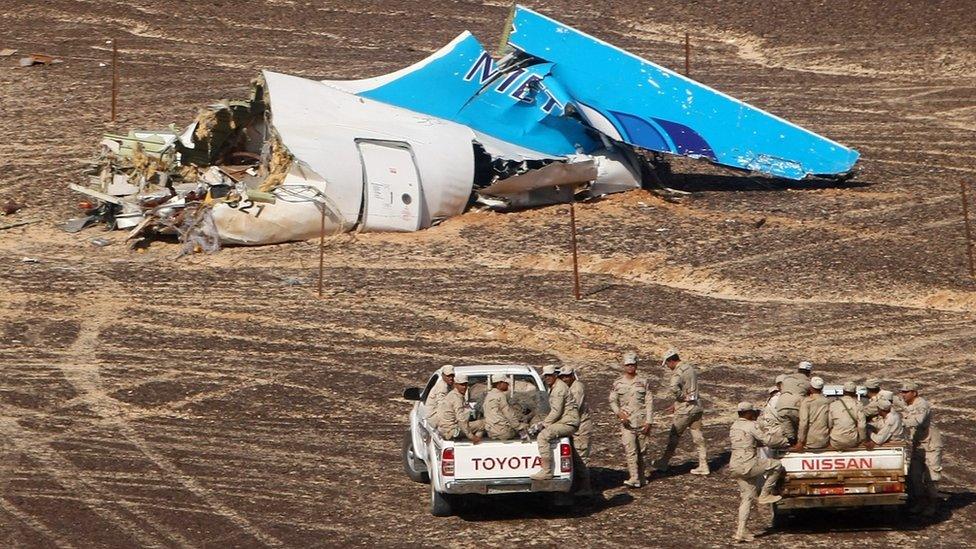Egypt plane crash: Dutch operator deemed Sharm unsafe in 2014
- Published

The Metrojet flight is believed to have broken up in mid-air on 31 October, killing all 224 people on board
Dutch tour operator Corendon has said it stopped offering holidays in Sharm el-Sheikh in Egypt in early 2014 after a warning about security threats.
A spokeswoman said it had no longer seen the Red Sea resort as a "carefree and safe holiday destination".
All 224 people on a Russian airliner flying from the resort to Russia were killed when it crashed on 31 October.
Other airlines began suspending flights last week amid fears that the plane had been bombed by Sinai militants.
Sinai Province, a group affiliated to Islamic State, has repeatedly claimed it brought down Metrojet Flight 9268, flying from Sharm el-Sheikh to the Russian city of St Petersburg on 31 October. Most of the victims were Russians.
Egypt has launched its own investigation into the growing belief among Western officials that a bomb was placed on the airliner.
UK Foreign Secretary Philip Hammond said it was "more likely than not" caused by an explosive. And Russian Prime Minister Dmitry Medvedev also acknowledged that "the possibility of an act of terror is of course there".
The UK is among several countries to have halted flights to and from the resort due to intelligence concerns - stranding thousands of holidaymakers.
'Warning downgraded'
The decision by Corendon Dutch Airlines to halt flights appears to refer to updated travel advice issued by the Dutch ministry of foreign affairs in February 2014, which said all travel to the Sinai was "inadvisable" and advised Dutch citizens to leave.
"The violence in Sinai has escalated in recent months and there is a real threat of terrorist attacks.
A spokeswoman for Corendon Dutch Airlines said on Tuesday that the firm used intelligence information at the time to determine whether Sharm el-Sheikh was "still the carefree and safe holiday destination that we want to offer to our customers".
"In early 2014 we decided that this was no longer valid for Sharm el-Sheikh," she said.
The government warning came days after four people died in a bomb attack on a tourist bus travelling from St Catherine's monastery in the Sinai peninsula. Militants from Sinai Province, known at the time as Ansar Beit al-Maqdis, claimed responsibility.
All Dutch tour operators suspended flights accordingly.
All of them - except for Corendon - then resumed their operations to the resort after the warning was downgraded a month later.
The ministry kept in place a specific warning for terrorist attacks in the airspace over the whole of the Sinai peninsula, a foreign affairs spokeswoman said.

Thousands of tourists are being flown home
The Dutch authorities restricted travel to and from Sharm el-Sheikh following the Russian airliner crash.
However Corendon is reportedly the only Dutch airline to have also halted holidays to the Egyptian destinations of Hurghada and Marsa Alam.
In a statement, the airline said the "decisive factor" for this decision was the extra luggage checks introduced after the crash.

More on Metrojet crash

On Monday, an Egyptian official told BBC security correspondent Frank Gardner that the country's intelligence service was looking into every possibility of how someone could have placed a bomb inside the luggage compartment of the plane.
An Egyptian member of the international team investigating the crash last week told Reuters that they were "90% sure" that a sound heard in the last moments of the recording of the plane's cockpit voice recorder was an explosion caused by a bomb.
The plane is believed to have broken up in mid-air.

Sinai Province militants
Most active insurgent group in Egypt, with 1,000-1,500 members
Operating in Sinai Peninsula since 2011
Pledged allegiance to Islamic State group in November 2014
Carries out suicide bombings, shootings, beheadings; dozens of Egyptian soldiers killed.

- Published10 November 2015
